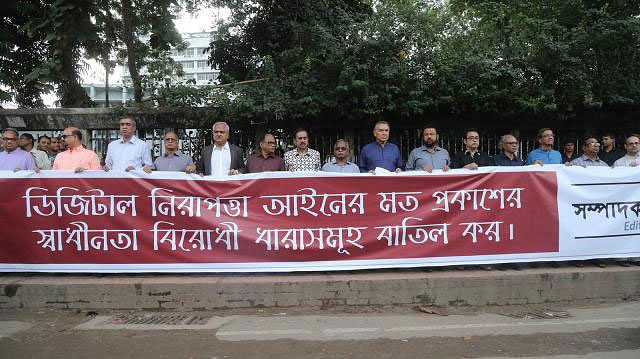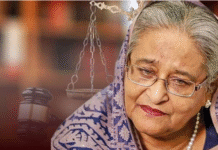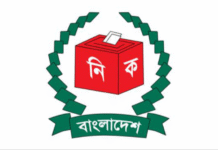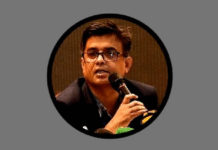
Within two years of passage of the Digital Security Act (DSA), the number of cases filed under the law, which has been termed by media and rights groups as oppressive, has crossed 1,000. Among those suits, 734 were filed with the cyber tribunal in Dhaka while police stations across the country have referred another 330 cases to the tribunal.
Most of those cases were filed under sections 25 and 29 of the act on allegations of smearing the image of the state or any individual. Lawsuits were filed on the same allegations under controversial Section 57 of the Information and Communication Technology Act (ICT Act) before the DSA had been composed.
A total of 1,135 people were arrested in 732 cases filed under the DSA across the country in the last year, the police headquarters data reveals. In the first two months of 2020, another 339 people were arrested in 165 cases filed under the act that was passed at parliament on 19 September 2018. Since then, at least 50 lawsuits have been filed against the media persons and 37 journalists arrested so far.
Speaking to Prothom Alo, Supreme Court lawyer Shahdeen Malik said the reason the government included sections of DSA, passed in 2018, deals with tarnishing image are the same for which the BNP government passed the section 57 of the ICT Act in 2006
Speaking to Prothom Alo, Supreme Court lawyer Shahdeen Malik said the the government included sections of DSA, passed in 2018, dealing with defamation and tarnishing the image of the government, for the same reasons that the BNP government passed Section 57 of the ICT Act in 2006. The law is being used the most for criticising the government or ruling party men.
According to the cyber tribunal sources, 468 Complaint Register (CR) cases were filed under the Digital Security Act with the tribunal alone in 2019. In the first eight months of 2020, the number of such suits is 220. In those 20 months, the court dismissed 329 cases for lack of substances.
Most of the allegations are not being proved
The trial of the cases filed under the previous ICT Act and current Digital Security Act are being held at the cyber tribunal in Dhaka. So far, 2,682 cases have been brought here for trial. Over half of these are filed under the Section 57 of the ICT Act.
Sources said that most of the cases lack credibility . Around 990 cases have been settled at the Dhaka cyber tribunal in the last seven years. Among them, over 450 were settled just by accepting the final report. Besides, accused are getting discharged for lack of evidence to frame charges against them.
People have the right to file cases. A person may file a case wrongly or rightly, that is not for us to interfere in. Accepting a case is the jurisdiction of the court
The state could prove the allegations only in 25 cases, court records reveal. Among them, 24 were filed under the ICT Act while one under the DSA.
Cyber tribunal public prosecutor (PP) Nazrul Islam told Prothom Alo, “The number of cases filed under the Digital Security Act has increased a lot. Many people come to file suits with no substance or evidence. There are many who just file suits for nothing.”
The Digital Security Act is extremely threatening for the freedom of expression. Even when there are no grounds for a case, cases are being filed and arrests are being made. In many cases this act is being used as a tool to harass people
He further said sometimes a person files a case but does not provide website links. The accused deletes the links. We cannot get information from Facebook either, he said. It is only normal that the final report will be provided to the cases that do not have any evidence. Sometimes, people resolve the matter locally.
Number of suits on the rise
In 2013, three cases were sent to the cyber tribunal. In 2014 this was 33, in the next year 152, in 2016 it was 233. In 2017, the number was more than double, 568. In 2018, the number was 676, in 2019, it was 721. As of 9 September this year, the number of suits referred to cyber tribunal is 296. A total of 2,682 suits were sent, filed under ICT Act and DSA, to Dhaka cyber tribunal for trial in seven years.
He further said, “The court is dismissing the suits that do not have merit. And, the final report is being submitted as the investigations are being done properly.”
Most of the suits being filed under sections 25 and 29
Trial under cyber tribunal began in 2013. All three cases filed that year were under the Section 57 of the ICT Act. Out of the 33 suits filed in the next year, 25 were under the Section 57. But the government passed the Digital Security Act scrapping Section 57 in 2018, since then most of the suits are being filed under sections 25 and 29. Out the 330 suits sent to the cyber tribunal from across the country, over 200 were filed under those two sections of the DSA.
According to the Section 25 of the DSA, it is a crime to send offensive or threatening information, or publishing or propagating false information to annoy, insult, humiliate or denigrate a person or publish or propagate or assist in publishing or propagating any information to tarnish the image of the nation or spread confusion.
And, according to Section 29, publishing or broadcasting any defamatory information in any website or in any other electronic format is a crime.
ICT Act’s five sections including 57 were dropped after it had drawn huge criticism.
The government enacted the Digital Security Act. Different media organisations including the editorial council raised a demand to amend nine sections including 25 and 29 of the act to protect the freedom of expression.
Supreme Court lawyer Jyotirmoy Barua conducts cases on behalf of those who are charged under the Digital Security Act including section 57.
Speaking to Prothom Alo, he said, “The Digital Security Act is extremely threatening for the freedom of expression. Even when there are no grounds for a case, cases are being filed and arrests are being made. In many cases this act is being used as a tool to harass people.”
Victims have no rights to file cases
If a false case is filed under the Women and Children Repression Prevention Act, affected people have scope to resort to the legal protection. But a victim of false case under the Digital Security Act has no such scope.
Supreme Court Bar Association president AM Amin Uddin said when final reports are readied, it is assumed that the case had been filed without substantive evidence.
An amendment has to be brought here. A provision has to be included creating an opportunity to take legal action against the plaintiff if the allegation is not proved, he suggested. Otherwise, people being accused in this case will suffer, Amin Uddin added.
* This report has been rewritten in English by Shameem Reza and Rabiul Islam.









